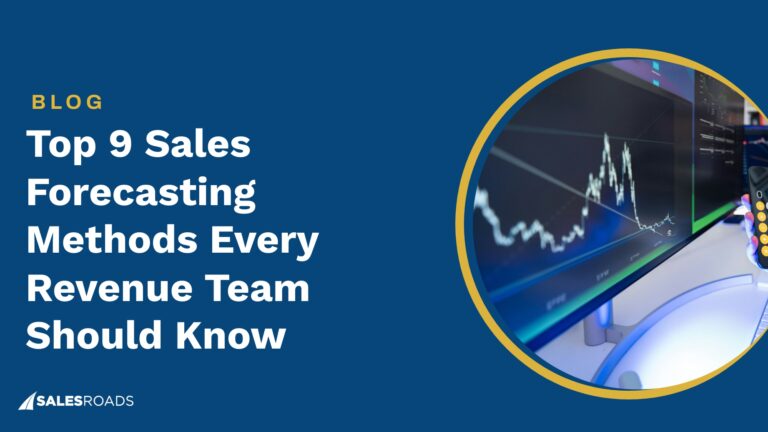Hiring the best salespeople for your team is essential to produce quality sales results. When it comes to finding high-performing SDRs, the recruitment process is not always easy: top talent professionals often leverage their skills to apply for higher positions.
As SDRs occupy entry-level positions, most applicants do not have on-the-job experience and need training to ramp up results. Your hiring process should take these factors into consideration and adapt to the specific challenges of onboarding new sales reps.
Relevant goals while interviewing SDRs are:
- Assess the applicant’s skill set for the role
- As the video below explains, there are two important things to look for in SDRs: the applicant’s work ethic and suitability for the company culture.
- Answer the applicant’s questions about the role and the company
20 Sales and Business Development Interview Questions
There are no right or wrong answers to these questions, but SDRs that show competence in these areas will better qualify for the role.
Can you Introduce yourself?
Probably the most common question in any interview, this aims to understand the candidate and what they think about themselves. Sales leaders look for SDRs that can give articulate, concise responses about their experience and why they qualify for the role.
Why do you want to work as an SDR?
When it comes to entry-level SDRs, sales leaders often want to understand their motivations for choosing this role as a career starter. Top candidates highlight their strengths and the value they will add to the company through the position.
What was the most challenging part of your learning experience?
Seeing what challenges have impacted the potential SDR helps to uncover areas that he/she may struggle with. If the issues persist after employment, they can form a basis for the sales manager’s coaching.
How do you evaluate a prospect?
This question uncovers the techniques that the potential SDR uses to assess prospects’ sales-readiness. Employees with lead-qualification skills increase team productivity by reducing the time spent on bad leads.
Can you describe an ideal sales process?
An SDR must be adept with sales processes and the technicalities involved. This question evaluates the candidate’s sales knowledge and how well they understand leads at each stage of the pipeline.
How do you handle objections?
An ideal SDR is a skillful objection handler. This question discovers how the candidate uses clients’ disapprovals to improve themselves and the sales process.
Can you tell us about this company?
Any prospective employee must know a bit about the company they want to work for. Their knowledge of the company supports their intent to create and add value to your business.
What is most exciting about our products/services?
The applicants should know the best features of your company’s product or service to guide leads toward purchase. The ability to emphasize a product’s benefits is an essential part of sales prospecting.
Sell us this product
This is the most common sales interview question and is effective for assessing a candidate’s selling ability. If they confidently sell your product to you, they might have a place on your team.
How do you handle a difficult customer?
SDRs face difficult clients and prospects all the time. The ideal applicant must show tactics for handling tough customers and demonstrate skills to bring them around for the purchase.
What is the hardest part of sales?
This question provides insight into what the candidate considers to be the tough parts of the sales process. If you eventually hire them, you can begin coaching around these areas.
What tools do SDRs use?1
SDRs use tools for scheduling appointments, prospecting, and outreach. Your ideal candidate should be able to explain how these tools can maximize sales results.
What do you know about lead generation?
Top SDRs apply lead generation strategies in their prospecting. An ideal job applicant can discuss lead generation techniques and understands their importance in daily activities as a sales representative.
Tell us something you learned recently
This question shows if the candidate is passionate about learning. The best applicants can mention concepts they recently learned and explain how they’ll apply this knowledge to improve results.
How do you handle conflicts on a team?
Sales managers coordinate SDR teams, but conflicts and interpersonal friction can still occur. Before hiring a candidate, evaluate his/her experience dealing with challenging team situations.
How do you measure personal success?
Top-performing SDRs set ambitious goals to keep them on their toes and improve results. The answer to this question helps the interviewer understand if the candidate is a go-getter.
How do you respond to failure?
This question evaluates the candidate’s resilience and how well they bounce back from failure. Will they relent when they don’t meet monthly or annual quotas?
The best SDRs are quick to learn from unpleasant results and implement plans to turn them around.
Why did you leave your last workplace?
This provides a glimpse into a prospective employee’s work experience. Is this an upgrade on the last job? A step up in their career? Were they fired from their last job? The candidate must give verifiable reasons for leaving their previous place of employment.
Can we role-play a sales conversation?
You can use an on-the-spot role-play to test the candidate’s sales skills and provide instant feedback. Recruiters use this to assess the applicant’s self-awareness and understand how they take constructive criticism.
Do you have any questions for us?
It is important to get feedback from the candidate at the end of the interview. Asking questions shows they paid attention and are interested in the job.
Bottom Line
There is no one size fits all approach to interviewing salespeople. All questions must point to hiring an SDR who has the core skillset, is coachable, and makes a right fit for your company.
If hiring SDRs is above your budget, you can leverage the experience of reliable third-party sales teams to ramp up revenue and grow your business.











